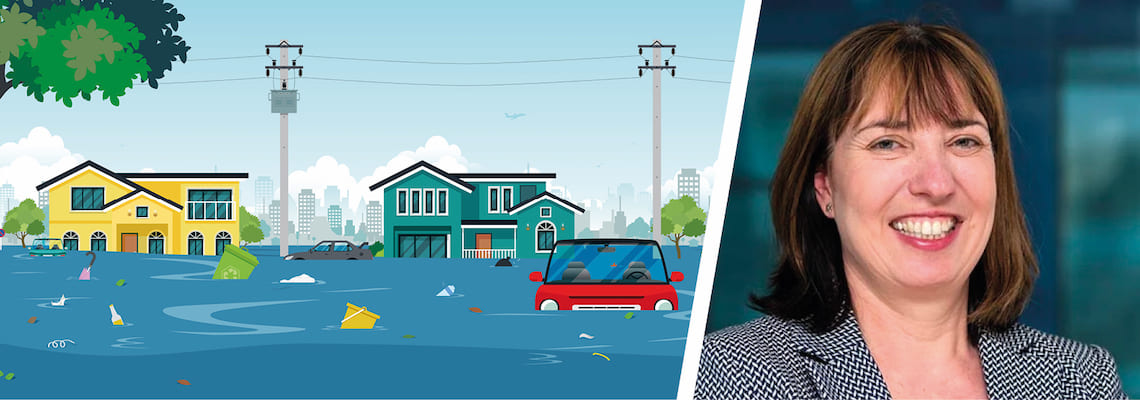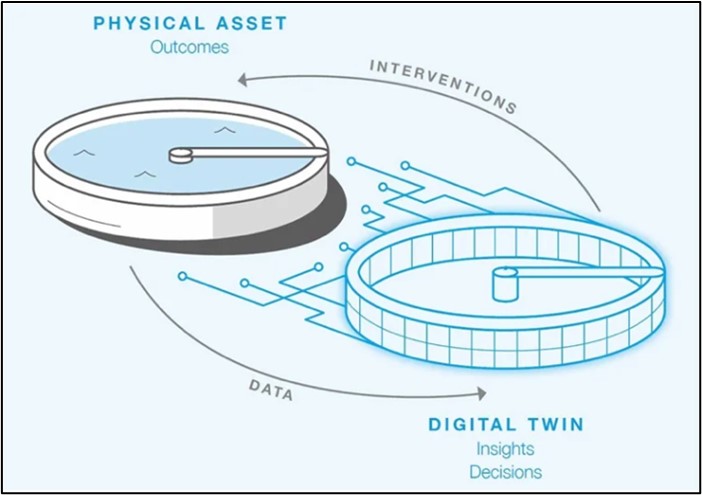Ending the guessing game: Digital twins and flooding
Digital twin applications in the prediction and management of flood risks could provide great benefits. We look into development by Arup and Aguas do Porto.
Waters ad-hoc challenge
Over the past few decades, flooding has become a more regular occurrence in most corners of the world, either as a result of natural disasters, climate change impacts and poor water management systems.
In the UK last year, there were over 3,250 internal sewer floods across England and Wales, with a further 23,500 external floods in private land and gardens.
Back in 2015, the United Nations reported that 43 per cent of all documented natural disasters around the world were severe floods.
Affecting 2.3 billion people, the report estimated that these floods cost $662 billion in damages.
This is not surprising, as the World Economic Forum recorded the number of floods almost doubled between 2000 and 2009.
While the causes of floods can be attributed to multiple factors, our own response to flooding has often been one step behind.
However, ways in we respond and predict flooding could all be about to change as digital twin solutions become a reality.
Gemini principles
Engineering company Arup has been developing a digital twin system that uses machine learning (ML) to better understand and learn from the behaviour of a specific system to better predict the locations of future flooding or pollution.
Arup’s system uses a series of sensors in a catchment area and a bespoke algorithm learns the behaviours of each sensor, the relationship between them and how different environment conditions impact them.
The ambition is to allow network operators to act pre-emptively reduce operational costs and increase efficiency.
In order to operate at maximum efficiency, Arup is championing open data to enable a wider range of information to be interconnected between its digital twin systems.
Vikki Williams, the digital water leader for Arup, recently wrote how the company fully supports the Centre for Digital Built Britain’s National Digital Twin programme and has adopted the “Gemini Principles” when developing digital twins.
The principles are designed to enable alignment on the approach to information and management across the built environment, establishing agreed definitions from the outset to make it easier to share data going forward.
"Flooding as a phenomenon is only relevant to different parties when it interacts with their different assets or interests."
Speaking to Aquatech Online, Williams said: “There are several challenges which need to be overcome to make digital twins a reality in flood management. Firstly, establishing a joined up consensus from different stakeholders, including local authorities, water companies and environment management authorities, about framing the problem and its solution.
“This is because flooding as a phenomenon is only relevant to different parties when it interacts with their different assets or interests. Once that consensus is established the different stakeholders have to find a way to jointly develop a solution that benefits them all.”
She added: “This will involve increasing flexibility in what and where they get services from, how they procure it and how they partner with digital organisations. To implement digital twin solutions, organisations will need to change and develop how they manage data and provide access to it for external parties to create new innovative services for them.
“This will involve all elements of data management and creating common standards. All of this is underpinned by stakeholder organisations being prepared to commit and invest with a longer-term picture in mind.”
Uncharted digital territory
Elsewhere, the city of Porto in Portugal is using a digital twin system to support the entire water cycle, from water distribution to storm drain management.
Utility company Águas do Porto had ongoing concerns that the city’s storm drains were carrying increased pollutants, causing a considerable rise in the inflow to the wastewater treatment plants.
Although more than 20 different software systems were in place, there was a lack of communication between each of the systems and no way to collect actionable data.
To combat the issue, Águas do Porto created H2Porto, a utility digital twin that was able to manage the city’s urban water cycle. This included 22 water supply models, an integrated sewer and stream models, a coastal circulation model and a high-resolution meteorological model.
"Operators managing the city’s water now get an up-to-date view of the city’s urban water system."
Operators managing the city’s water now get an up-to-date view of the city’s urban water system, with trigger alerts to help them quickly respond to flooding events.
Plus, H2Porto’s digital twin allows for an offline modelling system to study ‘what if’ scenarios that can be used to help plan for and improve water quality in the city.
Digital twin investment on the rise
The UK water sector is investing a great deal in smarter infrastructure.
In the next Asset Management Plan period, businesses will benefit from a combined investment of £51 billion for the improvement of services.
From this amount, £13 billion will be allocated towards providing resilient services and improved environmental performance.
Digital twins represent the need to bring water management systems into the modern age. Their potential application for flood prediction and management is just one area where this technology can be utilised.
Related content
- Digital Twins in water: what have we learned
- Valencia: Sun, sea and digital twins
- Desalination gets digital twin makeover
- Jaime Barba: It's time to learn from our mistakes
- Explore all our coverage related to urban water
Share your water technology stories with us
Do you have an innovation, research results or an other interesting topic you would like to share with the international water technology industry? The Aquatech website and social media channels are a great platform to showcase your stories!
Please contact our Sr Brand Marketing Manager Annelie Koomen.
Are you an Aquatech exhibitor?
Make sure you add your latest press releases to your Company Profile in the Exhibitor Portal for free exposure.
We promise never to send you spam and you can unsubscribe at any time!

